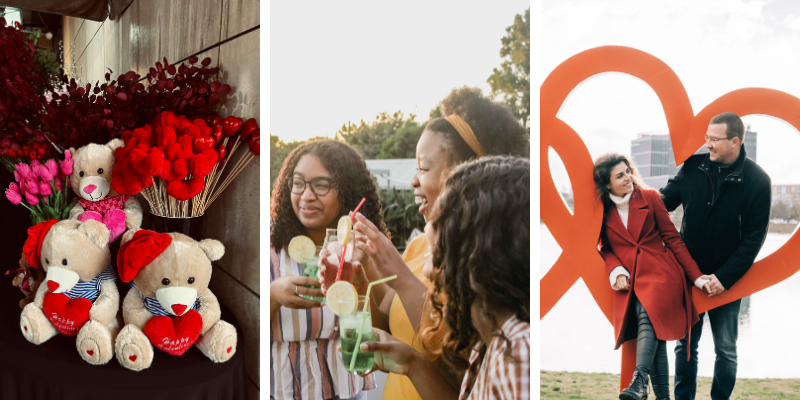Why is it so hard to find good help these days?
The answer often comes down to communication. It’s not that good help isn’t out there, but employers, including event organizers, often fall into one of these common pitfalls during the hiring process:
-
Misaligned Expectations: This often happens when the new hire or the business owner (or both) don’t fully understand what is expected in this role. It’s especially common when you’re hiring for an event because team members often wear more than one hat and juggle multiple different functions.
-
Skill Gaps: There’s often a big difference between a candidate's stated skills and their actual performance in a real-world event setting. Being organized and adaptable in a calm office setting and able to handle conflict during a sudden crisis on event day are very different.
-
Rushed Interviews: While common interview questions about multitasking, safety adherence, or handling conflict are undoubtedly important, they often elicit generic, rehearsed answers. These responses may not accurately reflect how a candidate would genuinely react when faced with a real-time crisis, a demanding attendee, or a sudden logistical challenge during an event.
Without correcting these issues, you can find yourself dealing with high staff turnover, low morale, and no-shows. The key to avoiding those headaches starts during the recruitment process – specifically during your interviews.
Traditional interview questions about general experience or multitasking are important, but they often fail to reveal how a candidate performs under the chaotic pressures of a live event, where success hinges on adaptability, resilience, and a proactive mindset when plans inevitably go awry.
Let’s dive into six critical questions designed to help you uncover essential traits for truly successful event staff and volunteers, helping organizers build a more reliable and effective team.
Question 1: Assessing Commitment to Irregular Schedules
-
Question: "Given the irregular and often short-term nature of event work, how do you ensure your consistent commitment and reliability for every shift, especially when plans change last minute?"
This question directly confronts one of the most persistent challenges in seasonal staffing: high turnover and no-shows. While many interviews confirm basic availability , this question probes a candidate's deeper understanding of and strategies for managing the unpredictable, non-traditional work patterns common in events. It seeks to uncover genuine dedication beyond mere logistical availability.
Reliability in seasonal roles is not just about a candidate's inherent trustworthiness; it is fundamentally about their realistic understanding of the unique demands—such as irregular hours, short-term assignments, and intense bursts of activity—and their proactive strategies for managing these demands within their personal life. If a candidate's expectations are misaligned with the reality of event work, or if they lack personal organizational skills to manage unpredictable schedules, their reliability will inevitably suffer, leading to no-shows or early departures. This question is designed to uncover whether a candidate has not just the willingness, but also a practical, thought-out plan for managing the unique logistical and personal challenges of temporary, irregular work. It screens for self-awareness and practical coping mechanisms that directly contribute to consistent attendance and performance.
|
The Overlooked Question |
Why It's Overlooked |
What to Look For |
|
"Given the irregular and often short-term nature of event work, how do you ensure your consistent commitment and reliability for every shift, especially when plans change last minute?" |
Assumes availability equates to unwavering commitment; fails to probe comfort with the transient, unpredictable nature of event roles, leading to no-shows and high turnover. |
Specific examples of reliability in past irregular roles; clear strategies for managing personal/other commitments; explicit comfort with temporary/seasonal work; understanding of long/weekend/overnight shifts. |
Question 2: Sustaining Energy & Positive Attitude Under Pressure
-
Question: "Event days can be long, physically demanding, and high-pressure. How do you maintain your energy and a positive attitude throughout extended shifts, and what's your approach to post-event recovery?"
While many interviews touch upon general stress management , this question specifically targets the
sustained nature of performance during long event hours and the often-ignored "post-event comedown". The event industry is notorious for its high-stress environment , and staff need more than just a quick fix for stress; they need strategies for prolonged endurance and effective recovery to avoid burnout and ensure they can return for future events.
Event work is inherently high-pressure and can lead to physical and emotional fatigue. For seasonal staff, who are often brought in for intense, short bursts of activity, their personal ability to manage their energy and recover effectively is even more paramount than for permanent staff, as they might not have the same ongoing organizational support structures. If a candidate lacks proactive self-care strategies, they are more susceptible to burnout, which directly leads to decreased performance, irritability, and ultimately, a higher likelihood of not returning for future assignments. Therefore, a candidate's approach to self-care directly impacts their sustained performance and retention across multiple event cycles. This question helps identify candidates who take personal responsibility for their well-being and energy management, which is a strong indicator of consistent performance and a higher likelihood of being a reliable, returning team member.
|
The Overlooked Question |
Why It's Overlooked |
What to Look For |
|
"Event days can be long, physically demanding, and high-pressure. How do you maintain your energy and a positive attitude throughout extended shifts, and what's your approach to post-event recovery?" |
Focuses on general stress management rather than the specific physical/emotional demands of long event hours and the critical, often ignored, need for post-event recovery to prevent burnout. |
Concrete strategies for maintaining energy/focus during long shifts; self-awareness of stress triggers and coping methods; recognition of the importance of rest and work-life balance for recovery. |
Question 3: Proactive Problem Anticipation
-
Question: "Can you describe a time you proactively identified a potential issue at an event (or similar fast-paced environment) before it escalated, and what steps did you take to prevent it?"
Most interviews focus heavily on reactive problem-solving (e.g., "How did you handle a mistake?", "How would you react to technical problems?", "Challenging event you managed?"). This question, however, shifts the focus to foresight and prevention, a far more valuable quality in event management where small issues can rapidly snowball into major crises. It assesses a candidate's critical thinking, observational skills, and an "always-on" awareness of potential risks, rather than just their ability to clean up messes.
While many conventional interview questions emphasize how candidates react to problems, the nature of events dictates that "unexpected situations will come up" and "things might not go as planned". Although fixing problems is necessary, preventing them in the first place is far more efficient and less disruptive. A staff member who can anticipate and prevent issues—for example, noticing a potential bottleneck before it becomes a crowd control problem, or spotting a disgruntled attendee before they escalate—reduces the overall workload and stress on the entire event team.
This proactive approach minimizes disruptions, ensures smoother operations, and directly enhances attendee satisfaction. This moves beyond simply reacting to problems to actively contributing to a seamless experience. This question helps identify candidates who are not just skilled at "firefighting" but are strategic thinkers who contribute to a more stable, professional, and ultimately more successful event execution, enhancing the overall brand reputation.
|
The Overlooked Question |
Why It's Overlooked |
What to Look For |
|
"Can you describe a time you proactively identified a potential issue at an event (or similar fast-paced environment) before it escalated, and what steps did you take to prevent it?" |
Standard questions test reactive problem-solving; this probes for foresight and the ability to prevent issues, which is vital for smooth event operations and minimizing disruptions. |
Specific examples of identifying potential problems; detailed descriptions of preventative actions taken; demonstration of critical thinking and initiative. |
Question 4: Initiative During Downtime or Ambiguity
-
Question: "In event roles, there can be periods of downtime or less defined tasks. How do you take initiative and stay productive when faced with ambiguity or quiet moments, especially as a volunteer?"
This question directly addresses a common pitfall, particularly in volunteer management: underutilization. While paid staff are generally expected to remain busy, volunteers, in particular, need to feel they are "contributing to a worthy cause". If left without clear direction, they can become disengaged. This question probes a candidate's self-motivation, their adaptability to unclear instructions, and their ability to identify and pursue productive tasks without constant supervision.
A key observation is that organizations often struggle with both overloading and underutilizing volunteers. If volunteers are left with nothing to do, or if their tasks are ill-defined, they can quickly become disengaged, feel unvalued, and are less likely to return for future events. This directly impacts volunteer retention and the long-term viability of a volunteer program.
Identifying candidates who naturally take initiative during downtime or ambiguity ensures that potential "dead time" is converted into productive time. These individuals are intrinsically motivated and do not require constant supervision, which is particularly valuable in dynamic event environments where managers are often stretched thin. This question helps identify proactive individuals who will remain engaged and contribute value even when direct supervision or clear tasks are absent. This not only maximizes their immediate productivity but also fosters a sense of purpose and contribution, which is crucial for long-term volunteer satisfaction and retention.
|
The Overlooked Question |
Why It's Overlooked |
What to Look For |
|
"In event roles, there can be periods of downtime or less defined tasks. How do you take initiative and stay productive when faced with ambiguity or quiet moments, especially as a volunteer?" |
Assumes staff/volunteers will always have clear tasks; neglects to assess self-motivation and proactive engagement during lulls, leading to underutilization and potential disengagement. |
Examples of self-starting or seeking additional tasks; adaptability to unclear instructions; strategies for staying motivated during routine or quiet periods; using downtime constructively. |
Question 5: Enhancing Overall Attendee Experience
-
Question: "Beyond your direct tasks (e.g., checking tickets, directing guests), how do you see your role contributing to the overall positive experience and satisfaction of event attendees?"
Many roles have defined, transactional tasks (e.g., ticket scanning, ushering). However, exceptional event staff understand their broader impact on the attendee journey. This question moves beyond basic customer service to gauge a candidate's empathy, "big-picture" perspective, and commitment to creating memorable experiences. It assesses whether they see themselves as an integral part of the event's success and brand reputation, not just a cog in the operational machine.
A core goal of event management is to achieve specific objectives and to enhance brand reputation by ensuring a positive experience for attendees. Every staff member, particularly those on the front lines, acts as an ambassador for the event. A positive interaction with a staff member can significantly elevate an attendee's experience, leading to higher satisfaction, positive word-of-mouth, and increased likelihood of repeat attendance. Conversely, a negative interaction can damage the event's reputation. This goes beyond simply resolving complaints; it is about proactively creating moments of delight for attendees. This question helps identify candidates who understand their role in shaping the event's public face and are intrinsically motivated to contribute to a superior experience, making them a significant value-add for event organizers and directly impacting the event's success.
|
The Overlooked Question |
Why It's Overlooked |
What to Look For |
|
"Beyond your direct tasks (e.g., checking tickets, directing guests), how do you see your role contributing to the overall positive experience and satisfaction of event attendees?" |
Focuses on task completion rather than the holistic attendee journey; misses assessing a candidate's empathy and proactive desire to enhance the overall event experience. |
Demonstrated empathy and a guest-centric mindset; ability to connect individual tasks to broader event success; examples of going above and beyond for attendee delight; proactive assistance. |
Question 6: Independent Customer Conflict De-escalation
-
Question: "When faced with a difficult or upset attendee, how do you approach de-escalating the situation and resolving their concern independently, before escalating to a supervisor?"
While handling difficult customers is a common interview topic , the crucial phrase "independently, before escalating to a supervisor" is often missed. In a fast-paced event environment, supervisors are frequently stretched thin, managing multiple critical areas. Staff who can competently resolve common issues at the first point of contact are invaluable; they maintain smoother operations, prevent minor frustrations from becoming major incidents, and free up supervisory resources for higher-level problems.
Dealing with difficult customers is a frequent occurrence at events. In a large, dynamic event, supervisors are often managing multiple critical areas, such as security, logistics, or VIPs. If every minor customer issue requires escalation to a supervisor, it creates significant bottlenecks, delays, and diverts valuable resources from other crucial tasks. This can lead to a perception of inefficiency and slow response times. Empowering front-line staff to resolve common issues independently frees up supervisors to focus on more complex or critical problems. This leads to faster resolution for attendees, a smoother overall operational flow, and a more professional image for the event. This question helps identify candidates who possess the judgment, confidence, and problem-solving skills to act as effective first responders, reducing the burden on supervisory staff and enhancing the event's responsiveness and professionalism.
|
The Overlooked Question |
Why It's Overlooked |
What to Look For |
|
"When faced with a difficult or upset attendee, how do you approach de-escalating the situation and resolving their concern independently, before escalating to a supervisor?" |
Often focuses on general conflict management; fails to assess the crucial ability to independently de-escalate and resolve issues on the spot without immediate supervisory intervention. |
Calm demeanor under pressure; active listening and empathy; ability to offer immediate, practical solutions; understanding of when to escalate vs. resolve independently; professionalism. |
Building Your Dream Event Team
Building an exceptional event team, especially for seasonal or short-term engagements, requires a strategic approach that extends beyond conventional hiring practices. By integrating the six "overlooked" questions into the interview process, event organizers can gain deeper, more nuanced insights into a candidate's true potential, moving beyond their resume to uncover critical behavioral traits. These questions are designed to identify individuals with the adaptability, resilience, proactive mindset, and genuine commitment that define successful event staff and volunteers, ensuring they are not just present, but truly impactful.
A well-vetted team, prepared for the unique demands of event work, is an organizer's greatest asset in delivering seamless and memorable experiences for attendees. By focusing on smart staffing and investing in processes that prioritize the right fit, organizers can leverage their human capital to its fullest potential, leading to smoother operations, fewer last-minute crises, and ultimately, more successful and memorable events.
Want to make your staff and volunteers' jobs easier? Passage is an essential part of your event dream team. We're there for your every step of the way: both for your team and your guests. We'll help set up your event page, answer attendee questions about tickets, and make sure your team is empowered to deliver an exceptional ticketing experience. Schedule a no-pressure call with a friendly event expert today.
















